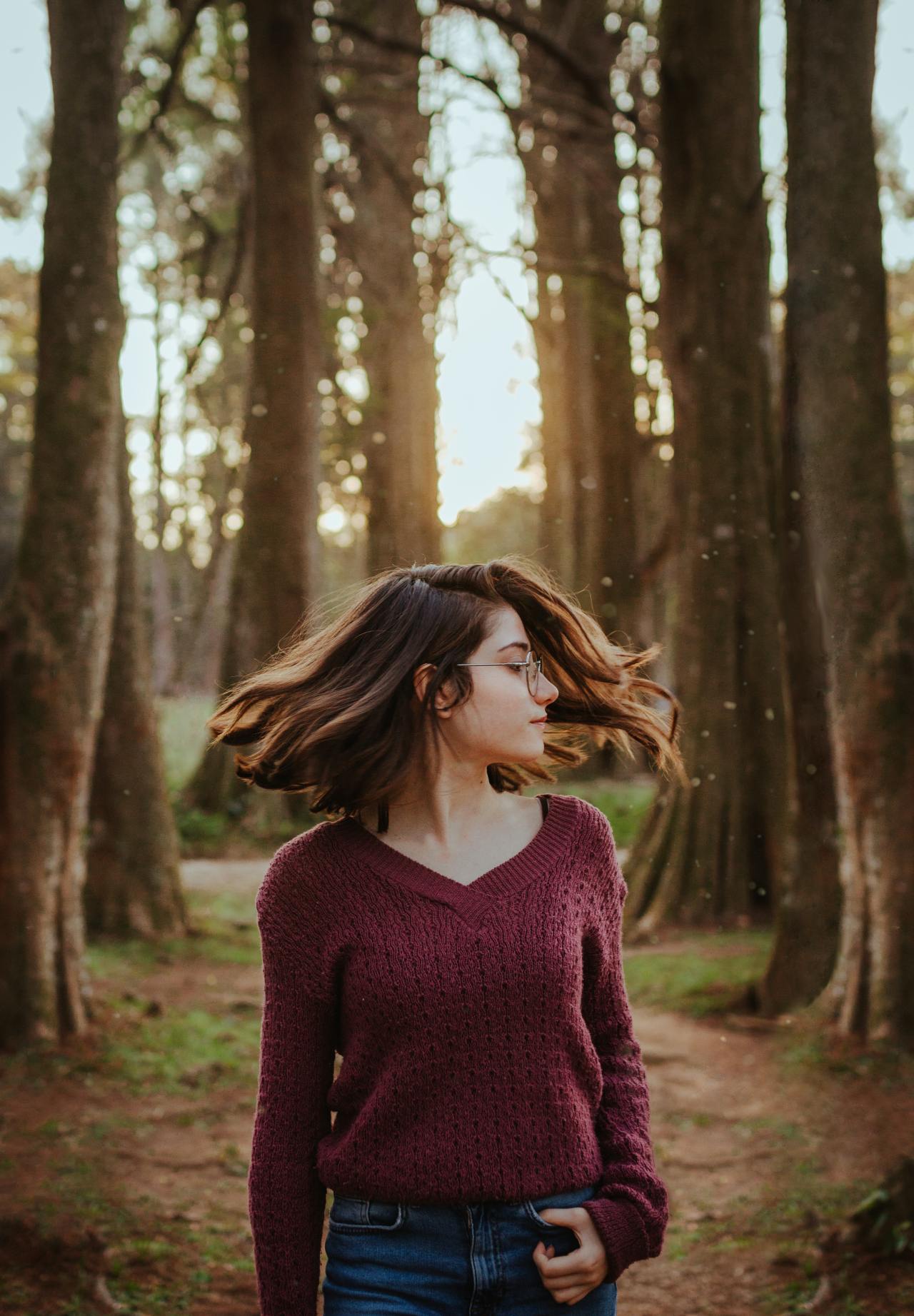
For The First Time In My Life, I Love My Hair
Hair has always been a pain point for me. I was a particularly bald baby to begin with, not to mention my hair grows at a snail’s pace—I got my first(!) haircut when I was four, and for a whole year of my life, starting around my second birthday, I insisted on wearing a tutu on my head everywhere we went because in my young eyes I believed it made me look like I had a full head of hair. It’s a ridiculous thought for a two year old to have, for more reasons than the reality that my tutu did not, in fact, trick the general public into thinking I had more hair than I did; I could barely walk, yet I’d already metabolized the notion that girls should have long, gorgeous, mermaid-slash-Disney-princess locks. The pictures of tutu-headed me are admittedly adorable, but still.
My hair did finally grow, but even then I could always find a reason not to like it, mostly because it still never felt like it wanted to grow. I’d cut it to my shoulders, it would climb another four or five inches, and then would simply stop, like it had gotten tired and wanted to relax until the next chop sent it on another marathon. No amount of supplements or hair masks or abstaining from color and styling tools seemed to be able to fix it. I tried cutting my hair every six weeks and I tried not cutting it for two years. Each time, the same result: hair grows, hair stops growing—same spot—and I’d chop it once again, rinse and repeat. Interestingly, the cuts I always found myself scrolling through on Pinterest prior to an appointment were those more closely resembling the heroines I was drawn to in films and on red carpets—edgy, choppy, chin-length styles, French bobs, and more of the like. I could never bring myself to do it, though. I was too close to a need to embody something else. Someone else.
Of course, it’s a classic case of wanting something I didn’t or couldn’t get, at least not without paying a lot of money that I didn’t (and don’t) have. More seriously, and more painfully, the root of that want was the should have of it all—that the hair on my head would always be a bit less than because my hair fell in the category of shouldn’t. It’s intellectual fallacy, I know, but the intellectual and emotional bodies are not one and the same, and no matter how many beautiful girls and women surrounded me, their hair embodying every gorgeous and mesmerizing uniqueness imaginable, my mind was irreversibly wired to a fixation on achieving bombshell, Victoria’s Secret angel strands. I could see the beauty in those I encountered, but I could never quite see it for myself. It all felt very backwards, and I knew it was, but understanding truth from fiction on purely rational grounds doesn’t automatically undo the watery inner minefield below. It certainly helps, but action needs to follow.
And action I did not take, until last Friday, when I chopped the damn thing into oblivion, or at least oblivion in comparison to what I’d done for the previous quarter century of my life. I don’t really know what changed in me other than I guess I’m just getting older and I care less what others think, though hair is really the only avenue where that’s ever been a problem for me. I suppose that’s only more confirmation of how deeply held the anxiety around my hair specifically goes, but few times in my life have I felt freer than when I sat in the stylist’s chair and watched the literal and figurative weight on my head and under my skin fall to the floor in brunette chunks. I felt a sigh of relief ripple through my body, toes to chest to skull, and suddenly I didn’t even sort of care what the finished result would look like. The action itself was enough to undo years of told, absorbed, and then self-inflicted stress, shame, and wanting. When I did finally look in the mirror, I saw a version of myself I’d never seen, but a version that had never felt more like me.
It’s ultimately inconsequential, right? Hair grows back, and the concept of beauty within an industrialized concept at all is a fickle, manipulated thing to begin with, its roots buried in the soil of colonialism and destructive capitalism. Nonetheless, the industry’s grasp on me runs deep—I have a history of disordered eating as well—as it does through many others, and my attempt to keep my hair long (or as long as it would grow without effectively cracking off at the bottom) was a way in which I clung to a pseudo safety blanket. Yes, the hair I thought I was required to have in order to be beautiful was, in fact, beautiful. But it is not the only way to be so. That, I’m finally not just learning, but putting into action, comes from somewhere else.
